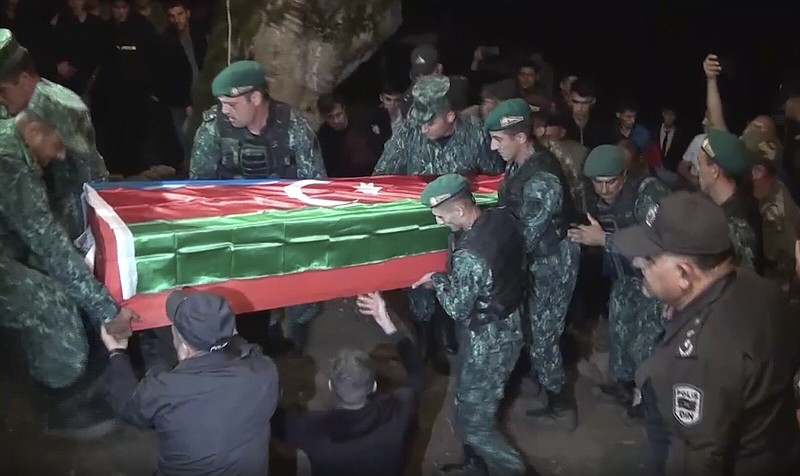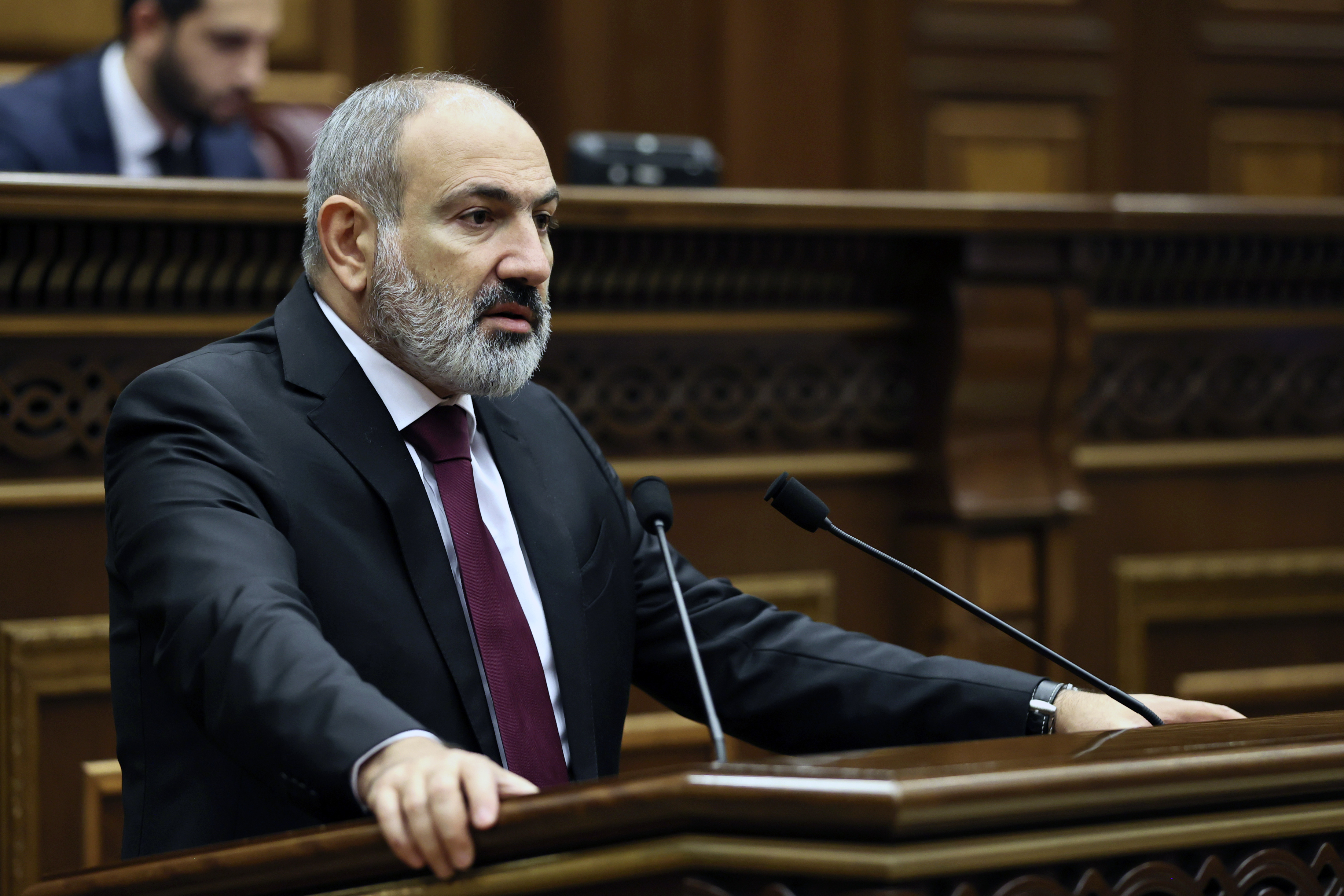YEREVAN, Armenia -- Armenia and Azerbaijan negotiated a cease-fire to end a flare-up of fighting that has killed 155 soldiers from both sides, a senior Armenian official said early Thursday.
Armen Grigoryan, the secretary of Armenia's Security Council, announced the truce in televised remarks, saying it took effect hours earlier, at 8 p.m. Wednesday. A previous cease-fire that Russia brokered Tuesday quickly failed.
Several hours before Grigoryan's announcement, Armenia's Defense Ministry reported that shelling had ceased but it didn't mention the cease-fire deal.
There was no immediate comment from Azerbaijan's government.
The cease-fire declaration followed two days of heavy fighting that marked the largest outbreak of hostilities between the two longtime adversaries in nearly two years.
Late Wednesday, thousands of protesters took to the streets of Armenia's capital accusing Prime Minister Nikol Pashinyan of betraying his country by trying to appease Azerbaijan and demanding his resignation.
Armenia and Azerbaijan traded blame for the hostilities, with Armenian authorities accusing Baku of unprovoked aggression and Azerbaijani officials saying their country was responding to Armenian shelling.
Pashinyan said 105 of his country's soldiers had been killed since fighting erupted early Tuesday, while Azerbaijan said it lost 50. Azerbaijani authorities said they were ready to unilaterally hand over the bodies of up to 100 Armenian soldiers.
The ex-Soviet countries have been locked in a decades-old conflict over Nagorno-Karabakh, which is part of Azerbaijan but has been under the control of ethnic Armenian forces backed by Armenia since a separatist war there ended in 1994.
During a six-week war in 2020, Azerbaijan reclaimed broad swaths of Nagorno-Karabakh and adjacent territories held by Armenian forces.
More than 6,700 people died in the fighting, which ended with a Russia-brokered peace deal. Moscow deployed about 2,000 troops to the region to serve as peacekeepers under the deal.
Pashinyan said Wednesday that Azerbaijani forces have occupied nearly 4 square miles of Armenia's territory since the fighting began.
He told lawmakers that his government has asked Russia for military support under a friendship treaty between the countries, and also requested assistance from the Collective Security Treaty Organization.
"Our allies are Russia and the CSTO," Pashinyan said, adding that the collective security pact states that an aggression against one member is an aggression against all.
"We don't see military intervention as the only possibility, because there are also political and diplomatic options," Pashinyan said, speaking in his nation's parliament.
He told lawmakers that Armenia is ready to recognize Azerbaijan's territorial integrity in a future peace treaty, provided that it relinquishes control of areas in Armenia its forces have seized.
"We want to sign a document, for which many people will criticize and denounce us and call us traitors, and they may even decide to remove us from office, but we would be grateful if Armenia gets a lasting peace and security as a result of it," Pashinyan said.
Some in the opposition saw the statement as a sign of Pashinyan's readiness to cave in to Azerbaijani demands and recognize Azerbaijan's sovereignty over Nagorno-Karabakh. Thousands of angry protesters quickly descended on the government's headquarters, accusing Pashinyan of treason and demanding he step down.
Pashinyan angrily denied reports alleging that he had signed a deal accepting Azerbaijani demands as an "information attack." Grigoryan, the Security Council's secretary, denounced the protests in Yerevan, describing them as an attempt to destroy the state.
Information for this article was contributed by Aida Sultanova, Vladimir Isachenkov, Nomaan Merchant and Kirsten Grieshaber of The Associated Press.
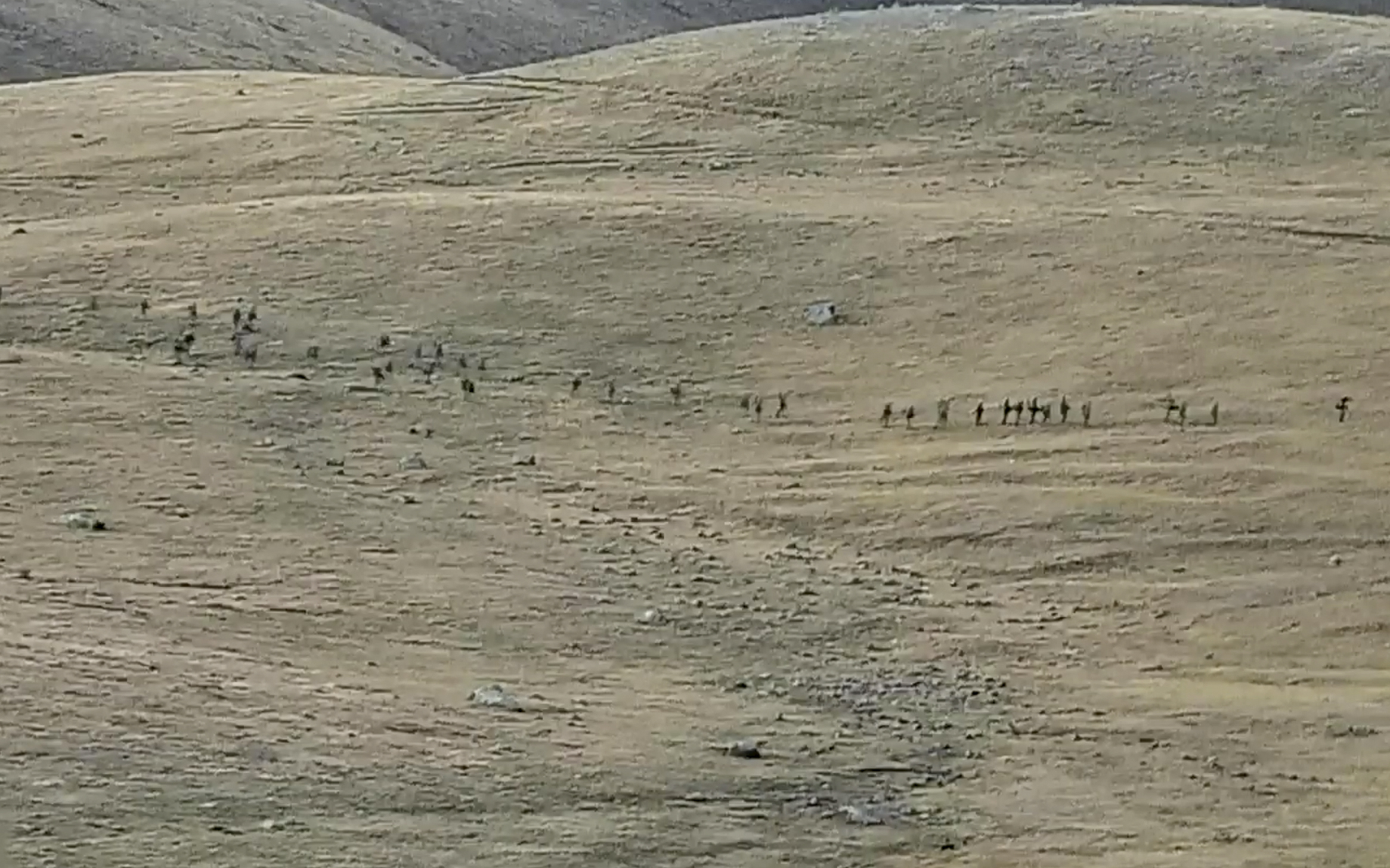 This image taken from a YouTube footage released by Armenian Defense Ministry on Tuesday, Sept. 13, 2022, shows Azerbaijanian servicemen crossing the Armenian-Azerbaijani border and approaching the Armenian positions. Armenia's prime minister says that 49 soldiers have been killed in nighttime attacks by Azerbaijan. (Armenian Defense Ministry via AP)
This image taken from a YouTube footage released by Armenian Defense Ministry on Tuesday, Sept. 13, 2022, shows Azerbaijanian servicemen crossing the Armenian-Azerbaijani border and approaching the Armenian positions. Armenia's prime minister says that 49 soldiers have been killed in nighttime attacks by Azerbaijan. (Armenian Defense Ministry via AP)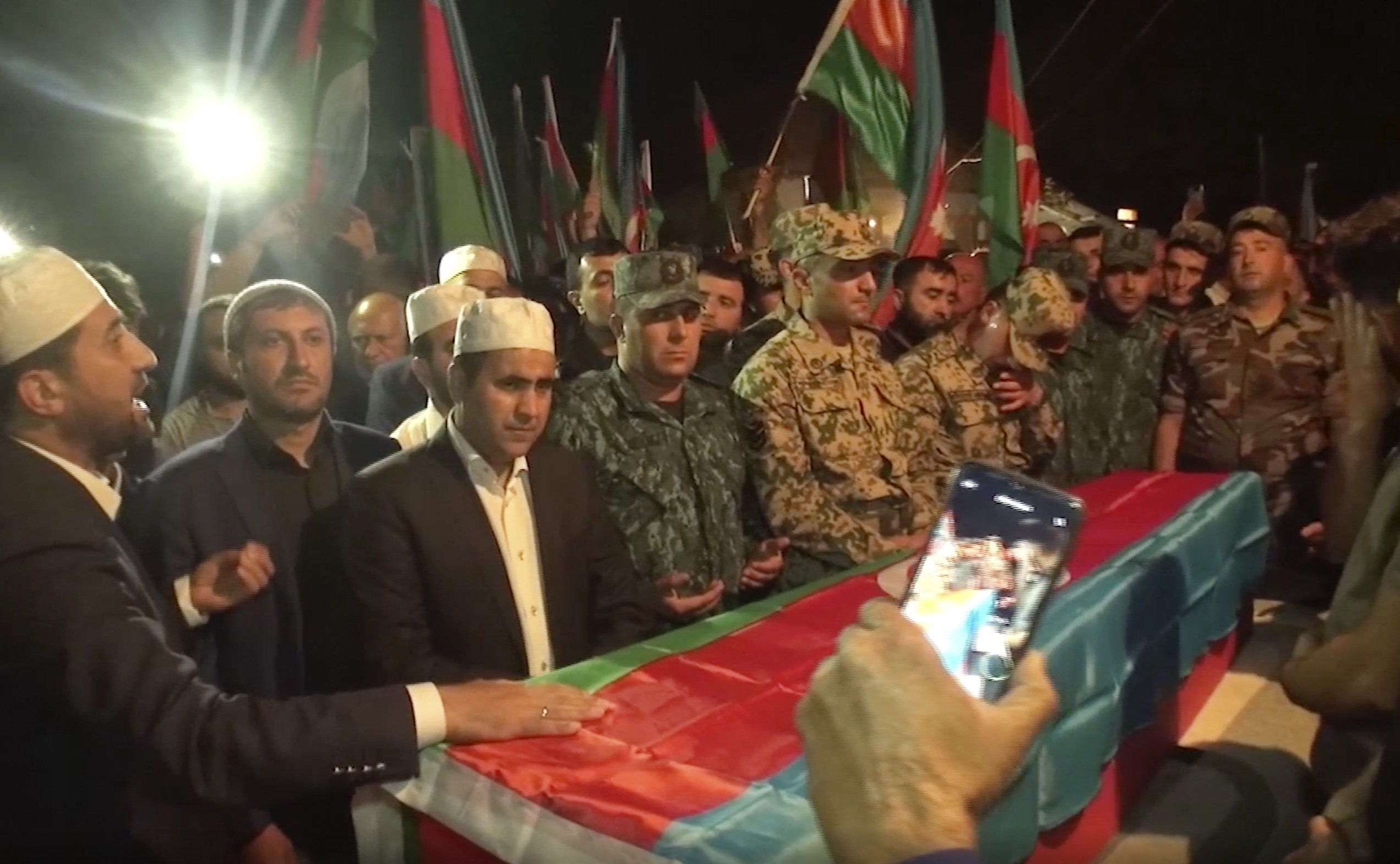 In this image taken from video, people stand around a coffin of Azeri serviceman Elshan Babazade killed at Azerbaijani-Armenian border, during his funeral in Mykhlygovag, Azerbaijan, Tuesday, Sept. 13, 2022. Armenia and Azerbaijan accused each other of new rounds of shelling on Wednesday morning as hostilities reignited between the two longtime adversaries. (AP Photo)
In this image taken from video, people stand around a coffin of Azeri serviceman Elshan Babazade killed at Azerbaijani-Armenian border, during his funeral in Mykhlygovag, Azerbaijan, Tuesday, Sept. 13, 2022. Armenia and Azerbaijan accused each other of new rounds of shelling on Wednesday morning as hostilities reignited between the two longtime adversaries. (AP Photo)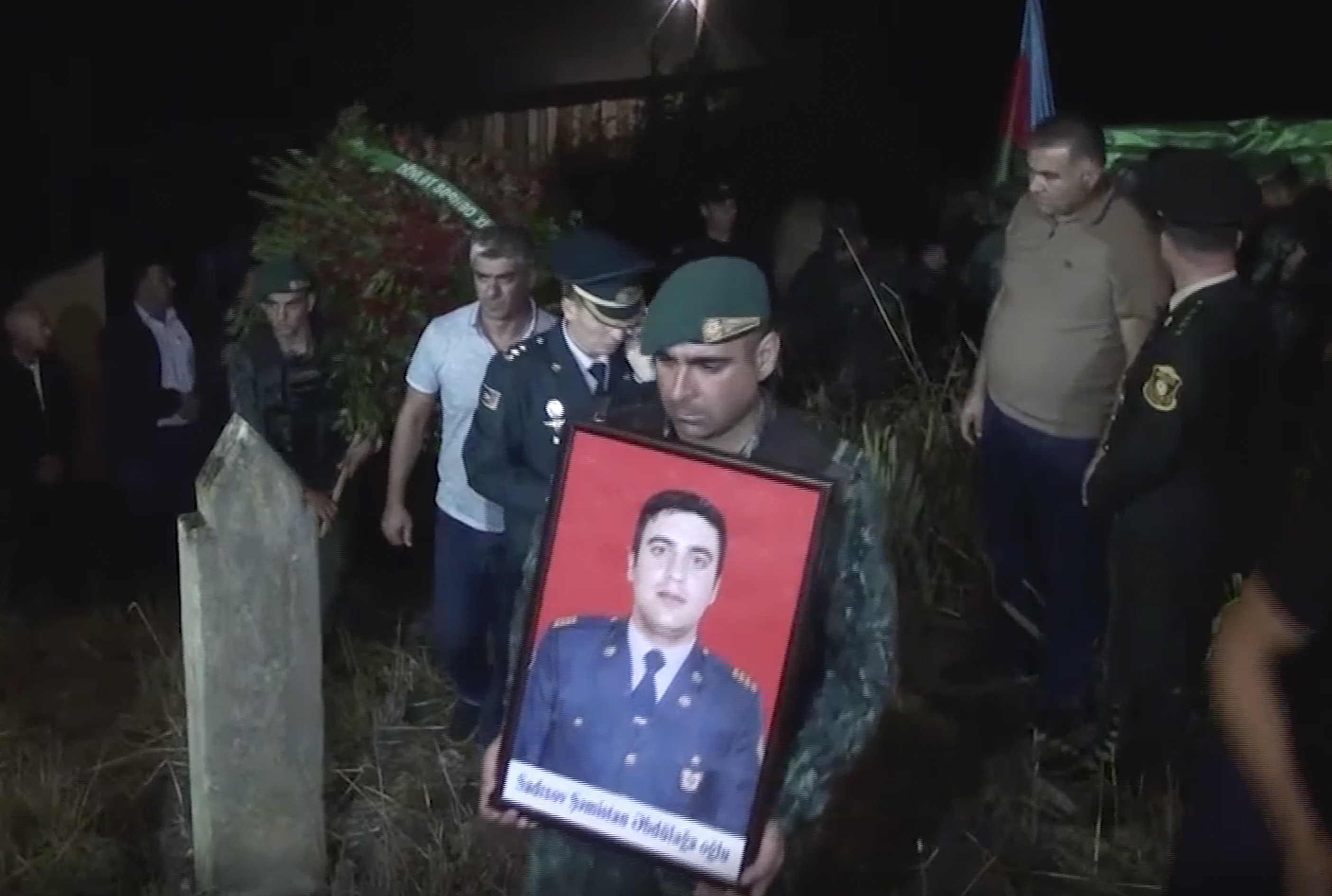 In this image taken from video, a serviceman carries a portrait of Azeri serviceman Shamistan Sadykhov killed at Azerbaijani-Armenian border, during his funeral in Lerik, Azerbaijan, Tuesday, Sept. 13, 2022. Armenia and Azerbaijan accused each other of new rounds of shelling on Wednesday morning as hostilities reignited between the two longtime adversaries. (AP Photo)
In this image taken from video, a serviceman carries a portrait of Azeri serviceman Shamistan Sadykhov killed at Azerbaijani-Armenian border, during his funeral in Lerik, Azerbaijan, Tuesday, Sept. 13, 2022. Armenia and Azerbaijan accused each other of new rounds of shelling on Wednesday morning as hostilities reignited between the two longtime adversaries. (AP Photo)